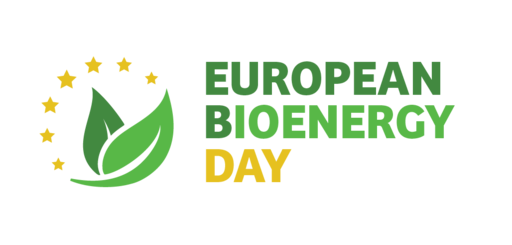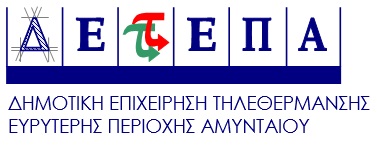As part of the EU-funded project AgroBioHeat, the Greek district heating company DEPETA has made the switch to agrobiomass and has established realiable local biomass supply chains.
West Macedonia is a Greek region with a cold, continental climate. For decades, it has served as the main pillar of the Greek electricity system, through the local mining of lignite (low rank coal) and its use in several coal fired power plants. District heating systems using heat derived from these coal plants were established in the 1990s and 2000s in three cities and provided low cost heat to local citizens. However, the imminent coal phase out in Greece and the decommissioning of the coal plants requires alternative solutions.
DETEPA is the municipal district heating company established for the city of Amyntaio and a few nearby communities. Knowing that the Amyntaio power plant would be decommissioned in 2020, DETEPA started investigations already back in 2015 to implement a new biomass heating system that would substitute the coal plant derived heat. The 30 MW in total biomass heating plant started operation in the 2020-2021 season and is already providing a low cost and renewable solution to the local citizens. This is the first project of its kind in Greece.
DETEPA requires around 60.000 MWh of fuel input per heating season. The establishment of local biomass supply chains is an ongoing process and the company has been using a variety of fuels: forest residues, wood waste, sunflower husk pellets and others. In the 2021-2022 heating season, DETEPA introduced the first quantities of maize residues, the most abundant local biomass resource in its fuel mixture and is looking to increase the quantities used.
In 2015, DETEPA also established a pilot DH system at the village of Lehovo for the heating of the two local schools. Initially envisaged to operate with commercially sourced wood pellets, the biomass system at Lehovo has underwent improvements and can now use biomass in the form of wood chips. Different fuels have been tested: vineyard pruning chips, sunflower husk pellets, etc. The small biomass DH at Lehovo is also innovative for Greece and can serve as a replication model for other municipalities wishing to exploit local agrobiomass resources.
Download the factsheet here.
About AgroBioHeat
The Horizon 2020 funded project AgroBioHeat “Promoting the penetration of agrobiomass heating solutions in European rural areas” aims to produce a mass deployment of improved and market-ready agrobiomass heating solutions in Europe. Agrobiomass is a large, underexploited, and indigenous resource, which can support the achievement of the European Energy and Climate targets while promoting rural development and circular economy.
![]() This project has received funding from the European Union’s Horizon 2020 research and innovation programme under Grant Agreement No 818369.
This project has received funding from the European Union’s Horizon 2020 research and innovation programme under Grant Agreement No 818369.
About the campaign
The campaign is powered by Bioenergy Europe and relayed across Europe by both national and international partners supporting the belief that bioenergy is more than a renewable energy source, it is also a reliable path that will lead Europe to achieve its renewable energy transition in the shortest span of time.




